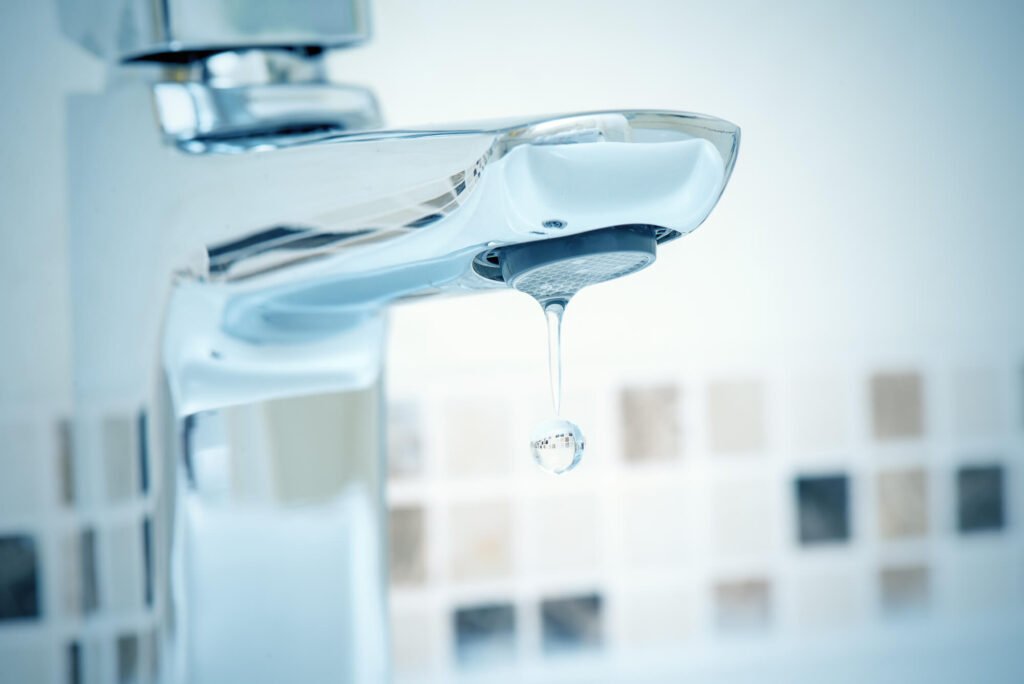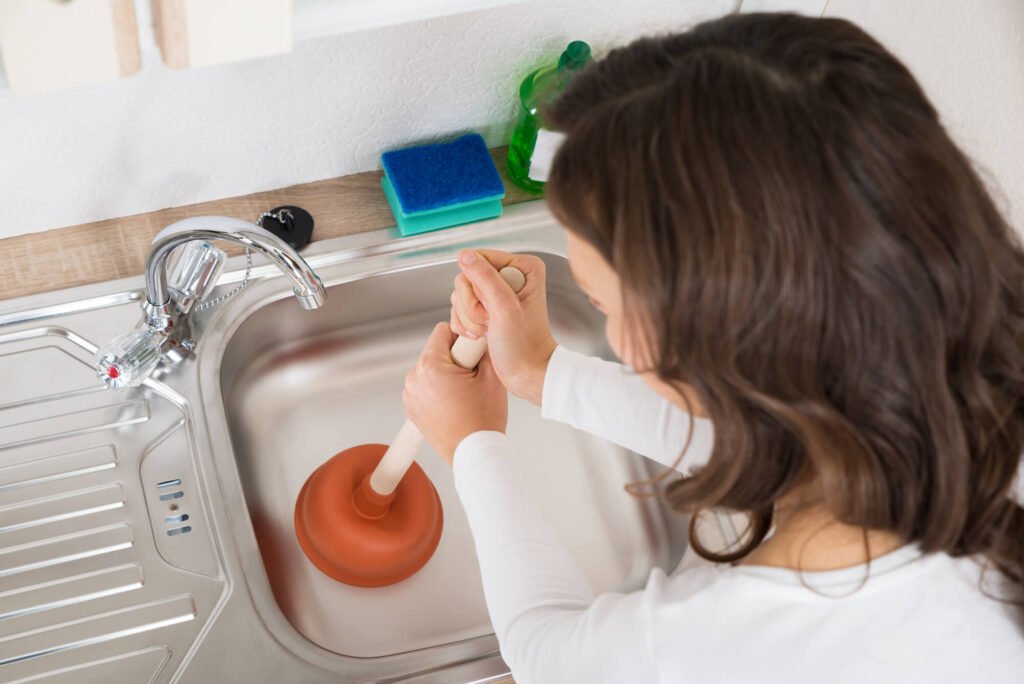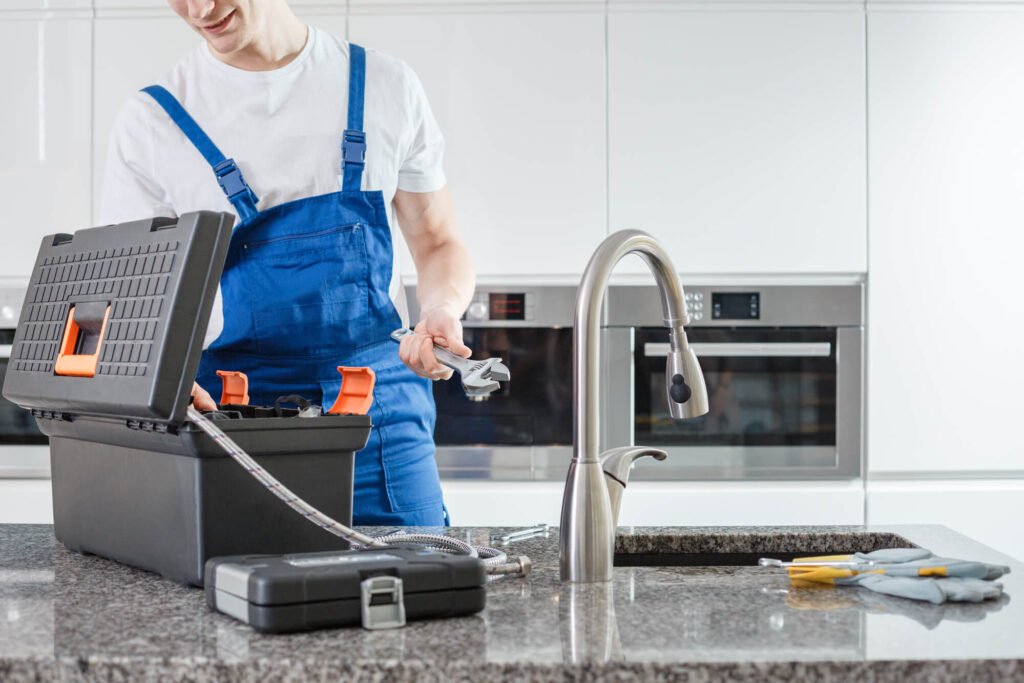If you’ve ever been startled by a strange noise, such as a sudden gurgling sound, kept awake by a persistent drip-drip-drip, or annoyed by noisy pipes, you’re already aware that your home’s plumbing system can produce a symphony of sounds.
While some of these noises may seem harmless, they can often be early warning signs of potential plumbing problems.
In this article, we’ll demystify common plumbing noises, including the ruckus caused by noisy water pipes, from the telltale drip of a leaky pipe to the jarring bang of a ‘water hammer’.
We’ll explain what causes these sounds, what they could indicate about your plumbing system’s health, and when you should call in a professional.
Armed with this knowledge, you’ll be better equipped to maintain your home’s plumbing and prevent minor issues from escalating into costly repairs.
So, let’s dive into the world of plumbing noises, helping you to better understand and care for your home’s most vital systems.

Dripping or Leaking Sounds
Ever been kept awake by the incessant ‘drip-drip’ or heard a mysterious leaking sound? Let’s decode what these common plumbing noises might be trying to tell you.
A dripping sound can be a clear indicator of a problem in your plumbing system. It’s mainly linked to water escaping from your faucets or pipes. Immediate attention to this problem is essential for dripping prevention. Ignoring it may lead to significant water wastage or, worse, water damage to your property.
Repairing leaks is not always straightforward. It requires a keen understanding of your plumbing system. If the sound originates from a faucet, fixing faucet drips involves replacing worn-out washers or seals. However, if you’re unable to locate the source of the noise, you may be dealing with a hidden pipe leak. Identifying pipe leaks can be challenging and may necessitate professional help.
Remember, water damage prevention is far more cost-effective than repair. Should you hear persistent dripping or leaking sounds, don’t disregard them. Regular maintenance can help identify and rectify these issues before they escalate.
Banging or Hammering Noises
If you’ve ever noticed a loud banging or hammering noise coming from your pipes, you’re likely dealing with a phenomenon known as ‘water hammer’. This isn’t just an annoying disruption to your peace; it could potentially cause damage to your plumbing system.
Water hammer is the result of a sudden change in water pressure when a tap is turned off quickly. This change causes the water in the pipes to slam against the shut-off valve, resulting in that unsettling banging noise. One effective solution to this problem is the installation of a water hammer arrestor, which can help to absorb the shock and reduce the noise.
One contributing factor to water hammer is pipe expansion. As hot water flows through your pipes, they expand and contract. This movement can cause your pipes to bang against the wall, leading to more noise. A similar issue, known as air hammer, occurs when air gets trapped in your pipes.
Loose pipes can exacerbate these noises. When pipes aren’t securely fastened, they’re free to clang against each other or against the walls.
These plumbing noises are more than just a nuisance; they could signify a need for plumbing repairs. It’s crucial to contact a professional to assess your system if you’re hearing these sounds. They can determine the root cause and suggest effective solutions to preserve the integrity of your plumbing system.
Whistling or Screeching Sounds
You’re sipping your morning coffee when a high-pitched whistling or screeching sound interrupts the tranquillity of your day. This is often a symptom of a plumbing issue that needs immediate attention.
The usual culprits behind these sounds are improperly adjusted water pressure, faulty air valves, inadequate pipe insulation, or clogged faucet aerators.
Firstly, water pressure can play a significant role in creating these sounds. If it’s set too high, it results in the water rushing through the pipes at an accelerated speed, causing a whistling or screeching noise. Adjusting the water pressure to an optimal level might alleviate the issue. A water pressure regulator can be a useful tool in maintaining an optimal water pressure level.
Secondly, air valves that aren’t functioning correctly can also lead to a screeching sound. Air valves help manage the air pressure in your pipes, and when they malfunction, they can create an unsettling noise.
In addition to water pressure and air valves, insufficient pipe insulation can cause these sounds. Insulation helps dampen the noise made by water moving through pipes.
Lastly, faucet aerators, which control the stream of water, can get clogged over time and cause a whistling sound. Regular cleaning of aerators, a part of regular maintenance, can help prevent this issue.
Bear in mind, if adjusting water pressure, checking air valves, insulating pipes, or cleaning faucet aerators doesn’t resolve the problem, it might be a more severe issue like a water hammer. In such cases, it’s advisable to call a licensed plumber for assistance.


Gurgling or Gurgle Noises
Suddenly, amidst the peaceful calm of the evening, a strange gurgling sound erupts from your pipes, instantly shattering the silence. This sound, familiar to many homeowners, can be quite alarming.
A gurgling noise in your plumbing system is usually indicative of air bubbles being forced through water within the pipes. This is often caused by a blockage in the pipes or drains, which disrupts the normal water flow and creates air pockets.
A common cause of this gurgling noise is a drain blockage. When there’s a restriction in your drain pipes, water pressure can build up behind it, causing air to be trapped and create a gurgling noise as it’s released. This can also happen if your plumbing vents, which are designed to release gases and maintain pressure in the system, are blocked or improperly installed.
Another possible cause is pipe expansion. As hot water flows through the pipes, they expand and contract, creating a gurgling noise. Similarly, if your water pressure, which plays a vital role in your plumbing system, is too high, it can cause pipes to vibrate and create this noise.
Addressing these issues promptly is crucial to prevent further damage. If you’re unable to locate or fix the problem, it’s best to call a professional plumber.
Rattling or Vibrating Sounds
Ever heard mysterious rattling or vibrating sounds echoing from your pipes? It’s a common, yet unnerving occurrence, often hinting towards an underlying issue in your plumbing system.
These sounds are typically indicative of loose connections, water pressure imbalance, or even faulty valves. Pipe insulation or lack thereof can contribute to such noises. Without proper insulation, pipes may vibrate against the structure of your home, producing that rattling sound. If you hear these sounds frequently, it’s worth having a professional evaluate your plumbing for adequate insulation.
Water pressure can also be a culprit. If it’s too high, it can cause pipes to rattle or vibrate. A pressure relief valve can help mitigate this issue, but if the valve itself is faulty, it may contribute to the noise.
Loose connections in your plumbing can cause pipes to rattle against each other, especially when water is running. Tightening these connections can often solve the problem.
Lastly, sediment build-up in your plumbing can lead to rattling noises. As water flows over these deposits, it can cause your pipes to vibrate.
Remember, persistent rattling or vibrating noises aren’t something to neglect as they might indicate a larger plumbing issue. Always consider consulting a professional to ensure your home’s plumbing is in optimal condition.


Frequently Asked Questions
What kind of noise could signify a potential problem with the water pressure in my plumbing system?
If you hear unusual gurgling, faucet whistling, showerhead squealing, or rumbling pipes, it may signify pressure fluctuation issues. These noises indicate potential water pressure problems in your plumbing system and demand professional attention.
Are there any specific sounds that could indicate a blockage in my drain pipes?
Yes, abnormal drainage acoustics like gurgling or bubbling sounds can be blockage indicators. Sound diagnosis is crucial in noise prevention. Understanding this acoustic interpretation can help you spot issues before they escalate.
How do plumbing noises differ between older and newer homes?
Older homes often exhibit pipe ageing sounds due to vintage plumbing characteristics, unlike newer homes which benefit from modern plumbing innovations and noise reduction techniques. In essence, old vs new plumbing noises significantly differ.
Why do some plumbing noises occur only at specific times, such as at night or during cold weather?
Temperature effects and seasonal changes can cause plumbing noises at specific times. For instance, night sounds may be due to cooling pipes. Cold weather impacts noise timing, as pipes contract and expand with temperature changes.
Can the type of material used in my plumbing system affect the kind of noises I might hear?
Absolutely, the material durability of your plumbing system can influence noise levels. Comparing materials, some are better for noise prevention. Upgrading to quieter materials could reduce the common plumbing noises you’re experiencing.
Conclusion
In conclusion, understanding your home’s plumbing system is crucial.
Listening for common noises like dripping, banging, whistling, gurgling, or rattling can help you spot potential issues.
While some sounds might be harmless, others indicate serious problems requiring immediate attention.
You don’t need to confront these issues by yourself. At Fluid Plumbing, we’re on standby to assist you. Our highly trained experts are prepared to manage all your plumbing needs, no matter how intricate they might be. If you’re in Newcastle, our proficient Newcastle Plumbers are just a call away. If Canberra is your base, simply get in touch with our dedicated Canberra Plumbers to link up with our locally-based specialists. Let us provide you with the support and solutions you need, exactly where and when you need them.
